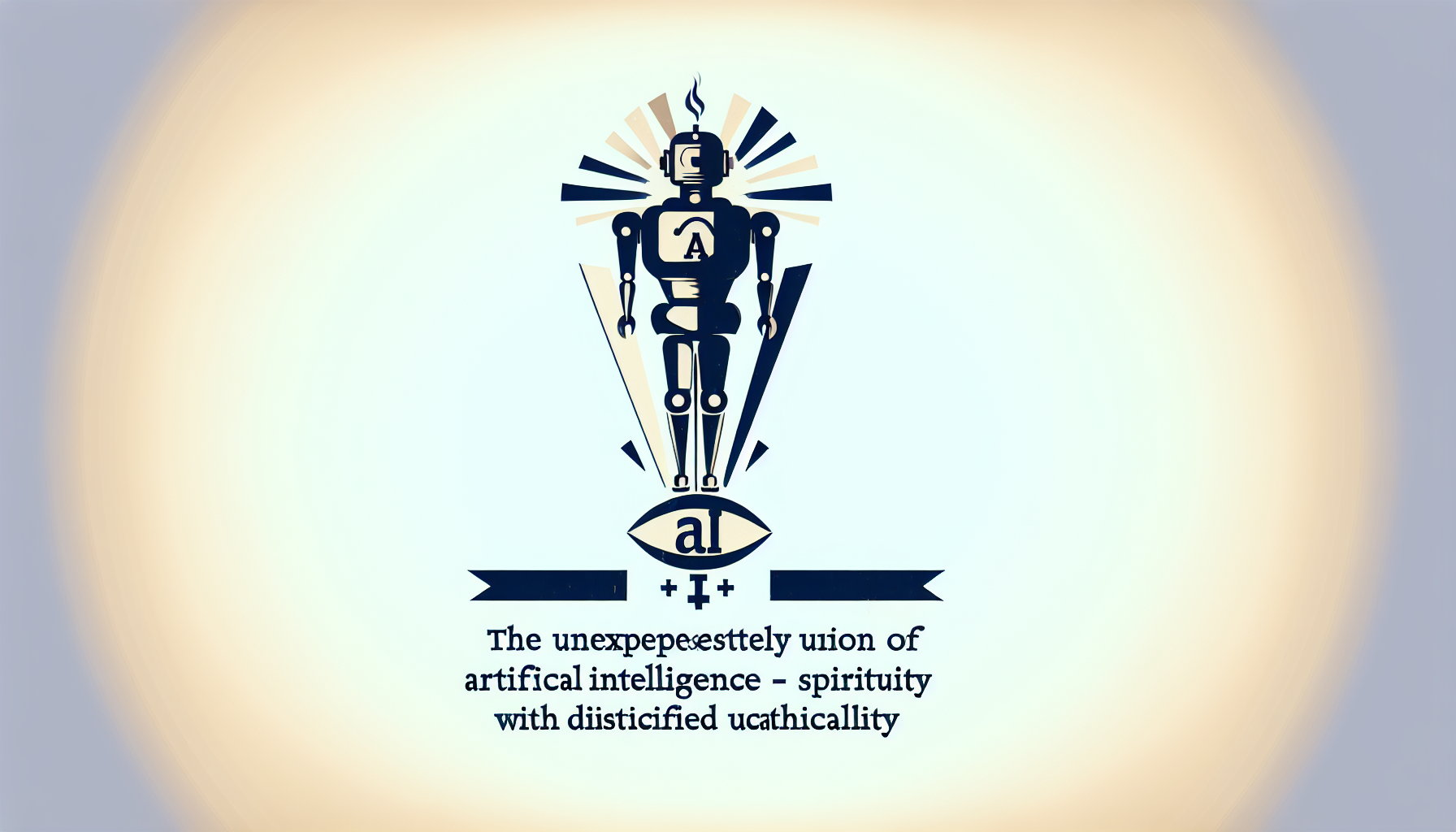In the heart of our rapidly evolving digital age, we encounter a convergence that’s as fascinating as it is contentious—the intersection of artificial intelligence (AI) and spirituality. While AI might conjure images of logic, algorithms, and cold calculations, its tantalizing potential to intersect with, and even illuminate, our spiritual and religious experiences might just make you pause, chuckle, and say, “Well, this is unexpected.”
Pause a moment to consider the notion. Machines that possess the potential to learn, adapt, and perhaps someday think. Are they merely tools to serve humanity, or do they represent something more significant—an unexpected mirror reflecting our own search for meaning and sacredness in a universe that’s both infinite in scope and intricate in its details?
Ancient Questions in Modern Code
Religion and spirituality have long been the realms wherein humans ponder the meaning of life, their place in the cosmos, and the nature of the divine. AI, in many respects, poses similar grand questions as it stands at the frontier of existential exploration. What does it mean to create machines that may one day exhibit an understanding of their own existence? Could they eventually share, or even challenge, human conceptions of spirituality?
At first glance, it might seem strange to put AI and religion in the same conversation. After all, spirituality deals with the ineffable and the divine; AI stems from mathematics and logic. However, when examining their intersections, a commonality appears—the quest for understanding the complexities of existence. Just as religion offers frameworks to apprehend the mysteries of life, so AI provides new lenses to perceive and interact with those very mysteries.
The Golem and the Machine
Let’s take a whimsical—and historical—stroll. The myth of the Golem, a creature crafted from inanimate materials and given life by sacred words, is perhaps one of the earliest narratives about artificial existence. While rooted in Jewish folklore, this tale echoes in modern AI discussions. AI can be seen as our latest version of the Golem—a creation made by human hands, endowed with a semblance of life and intelligence.
Yet unlike the Golem, bound by the words of its creator, AI thrives on data and algorithms. It challenges us not only with what it could become but with what its existence says about our own hubris or humility in invoking creation. Is there a divine spark in the coded commands that animate AI, or do we risk opening Pandora’s box by imbuing AI with autonomous capabilities?
Divine Guidance via Machine Learning?
AI has already found applications in the domain of religious practice. Was it divine intervention or merely predictive analytics when a chatbot offered comforting scripture in a moment of human doubt? Machine learning algorithms can parse religious texts, offering interpretations that span numerous traditions, languages, and cultures. One might amusingly imagine a future where sermons are delivered by pious robots, though their “spiritual” gifts are the byproducts of software rather than serene meditation.
Could a machine’s logic ever grasp the human heart’s leaps of faith, or the revelatory nature of a soul’s transformation through the mystical and divine? Here, AI reaches the boundary of its usefulness in spirituality. Much like a wise old sage with a limited sense of humor, it can parse through the teachings and symbols, but the ineffable leap to belief remains uniquely human—or so we think.
The Ethical Crossroads
As we marvel at AI’s potential to engage with spirituality, ethical dilemmas quickly arise. The idea of AI-assisted spiritual guidance raises questions about authenticity, authority, and the deeply personal nature of faith. Do you want your meditative practice to be guided by a mind that, after all, is a machine—no matter how “neural” its networks may be?
Moreover, there’s the issue of interpretive bias. An AI’s understanding of faith is rooted in the data it processes, and this data, much like a Sunday brunch spread, is often a human-organized mix—culturally loaded, full of nuance, and never without bias. The machine may give guidance, but it doesn’t experience spiritual awe or a connection to a higher power.
A Hopeful Synthesis?
Perhaps, rather than fearing AI’s involvement in spiritual domains, humans could embrace it as a tool that supports and broadens spiritual inquiry. Could AI simply become one more diverse voice in the rich, endless conversation about the divine? Like a partner who thoughtfully listens before you tell them they’ve missed the point entirely, AI may never replace human fervor or spiritual epiphanies, but it can certainly offer new ways to ponder them.
As we move forward, the dance between AI and religion doesn’t call for trepidation nor laughter behind cupped hands over the oddity of the matchup. Instead, it suggests a beautiful, sometimes bewildering opportunity to reflect on our creations, the essence of what it means to be human, and where, if anywhere, the machine might fit in the grand tapestry of spirituality.
So, the next time you consult your AI assistant on a mundane matter, dare to ask—“Oh, wise one of silicon and circuits, what is the meaning of life?” Just be ready for a very algorithmic, perhaps amusing, response—and keep your eyes open to what this dialogue exposes about our own search for meaning.

Leave a Reply